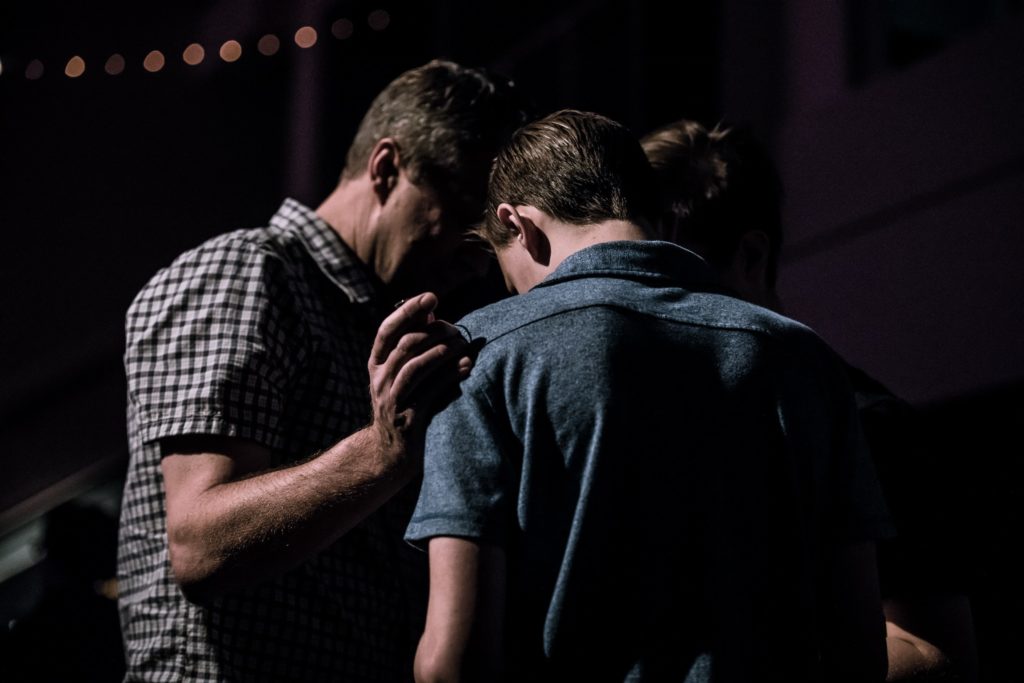
“Experts” tell us that we can’t be productive or successful without goals. We should write down our daily, weekly, monthly, and annual goals, and check them off when they’re completed. We should constantly re-evaluate our goals to be sure that they match our priorities.
In Ephesians 4 God gives His goals for the church. Church isn’t just something we go to as spectators, a place where we meet people and perform rituals. It’s a living organization with a specific mission. In this passage God lays out his goals for the organization of which He is chief executive officer.
He says first that he has given to the church all different kinds of people (Ep 4.11), who by their diversity, and consequent interdependence, will enable one another to minister effectively (Ep 4.12), which in turn will bring the whole body to maturity.
His first goal is pretty straightforward: he wants us to grow up. He measures that growth in two ways (Ep 4.13).
First, he says, we “attain to the unity of the faith and of the knowledge of the Son of God.” “The faith” is the doctrinal teaching of the Scripture; the church should be a teaching institution, and while some of us should be there to teach, all of us should be there to learn. Do you arrive at the services of the church each Sunday with that goal in mind? Do you lean into the teaching and preaching (and conversations in the hallways) with the intention of hearing and learning what the Bible says and how you should apply it?
But Paul doesn’t leave this merely an academic exercise; we also need to grow in our knowledge of Christ. Of course that means learning facts; you interact with friends and loved ones based on facts you have come to know about them over the years. But we all know that relationship is about more than facts. There’s a personal side, and an emotional side, and a volitional side; you want to be with the person, and you love being there.
And that changes how you live. Over the years I’ve learned that there are certain things my wife doesn’t like—things that I used to do comfortably and routinely before I knew her. I don’t do those things anymore. And I don’t miss them. I value my relationship with my wife more than I value those things.
Similarly I learn about Christ from the teaching and preaching at church, and from conversations with other believers. But I also learn about him by being around my fellow travelers and watching them, consciously or subconsciously. We share our relationships with Christ with one another, and we all grow closer to him.
Next, Paul says that we “attain to mature manhood,” and specifically “to the measure of the stature of the fulness of Christ.” Commentators are divided on just how we should translate this phrase, but I would suggest that it is not “until we measure up to Christ,” or “until we’re as tall as Christ,” but rather, “until we show how tall Christ is.” I take that from later in the passage, where Paul says that the church is the body, and Christ is the head (Ep 4.15-16). If someone’s head is much too large for his body, the image can be grotesque. Our job is to grow as a body until we’re just the right size for the head, so that the overall picture is proportional and graceful.
I would suggest that pretty much every church has a lot of growing to do before it stops making Christ look unattractive. As I watch various people deconstruct their faith these days, I find that the motivating factor is often not something that God did, but something that his people did.
And thus has it ever been.
Next time we’ll continue in this rich passage to see what “mature manhood” looks like more specifically.
Photo by Francesco Ungaro on Unsplash





